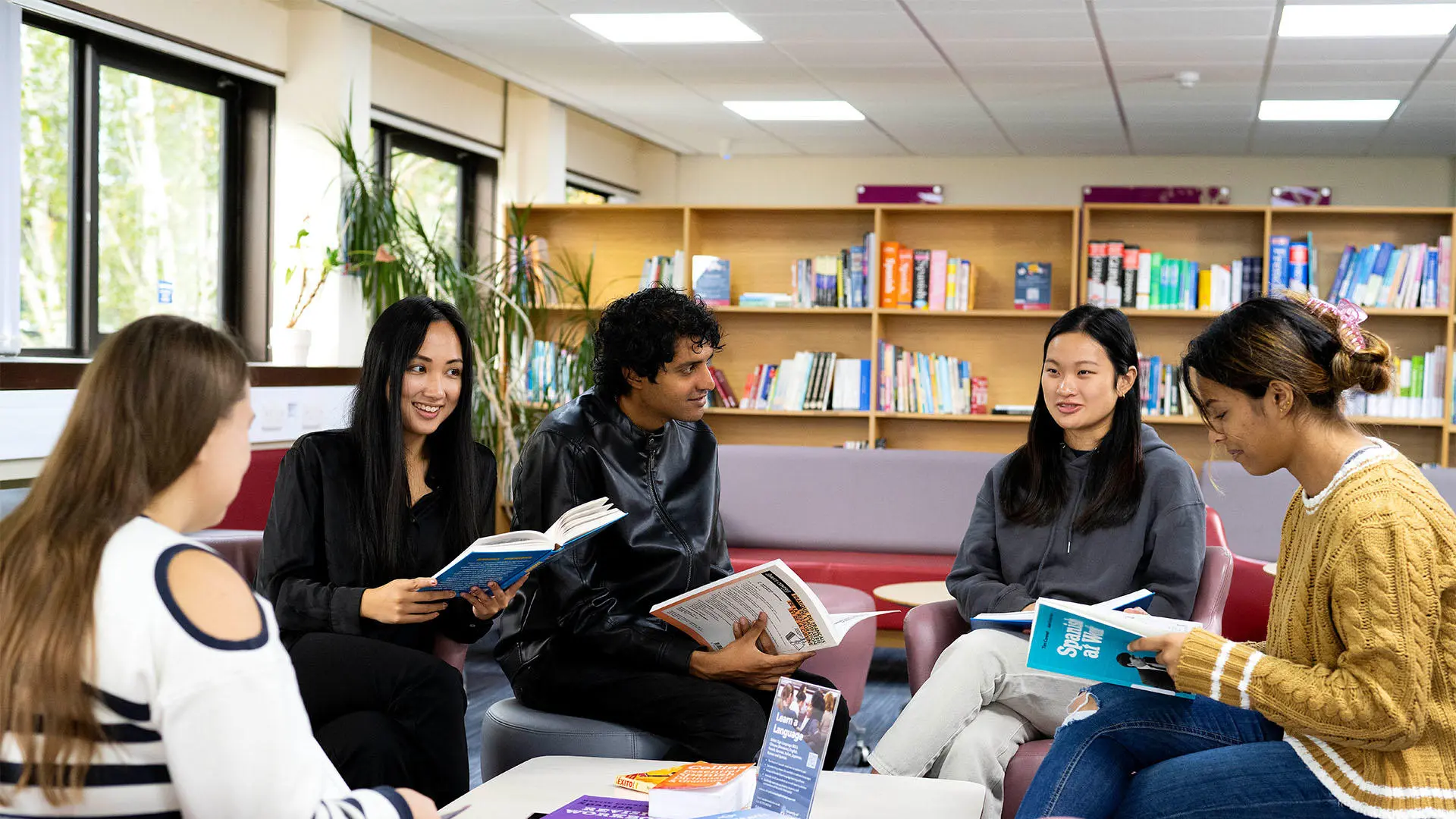Develop your communication skills in the language of your choice. Delve into the culture and history of your chosen language and expand your knowledge of world events.
Why study with us
- Work or study abroad for a period to enhance your language skills, improve your confidence and experience a different culture.
- Develop the language skills and knowledge you’ll need to succeed in global business, including interpreting.
- Make the most of our Worldwise Learning Centre, with free access to Rosetta Stone for your guided study time
Sound interesting?
What can I do with a degree in languages?
You could enter a variety of occupations after studying a language course. Our graduates work for local governments, in international business, consultancy, translation/interpreting, or worldwide teaching.
A degree in language could lead to a career as a:
- Interpreter
- Translator
- Policy Officer
- Political Risk Analyst
- Civil Service Fast Streamer
- Diplomatic Service Officer
Take the next step

Study a degree at UCLan
Interested in studying a degree with us? From exploring accommodation to visiting us at an Open Day, find out everything you need to know about life at UCLan.
Meet the team
Professor Niki J.P. Alsford
Professor
Dr Moises de Souza
Lecturer
Dr Ti-Han Chang
Lecturer
Dr Hae-Sung Jeon
Senior Lecturer in Korean Studies
Dr Sojin Lim
Reader in Asia Pacific Studies
Dr Lara Momesso
Senior Lecturer
Dr Pauline Harries
Senior Lecturer
Dr Mark Orme
Principal Lecturer
Matt Thurston
Director of Studies, Language Academy
Dr Robert Kasza
Senior Lecturer in Japanese
Dr Chisa Matsukawa
Lecturer in Japanese
Dr Olga Tabachnikova
Reader in Russian
Dr Dominik Vajn
Lecturer in English Language and Linguistics
Dr Elena Artamonova
Lecturer in Russian Studies
Dr Daniel Bürkle
Lecturer in Psycholinguistics
Dr Andrea Taberner
Senior Lecturer
María Dolores Iglesias Mora
Lecturer
Elena Anna Maria Gandini
Lecturer
Adham Mardini
Lecturer in International Student Support
Dr Josie Leonard
Senior Lecturer
Dr Karen Smith
Senior Lecturer
Dr Tania Horák
Senior Lecturer
Dr Isabela Fairclough
Senior Lecturer
PC
Dr Philip Constable
Senior Lecturer in History
Dr Ed Griffith
Associate Dean
TA
Takako Amano
Senior Lecturer
XC
Dr Xi Chen
Senior Lecturer





